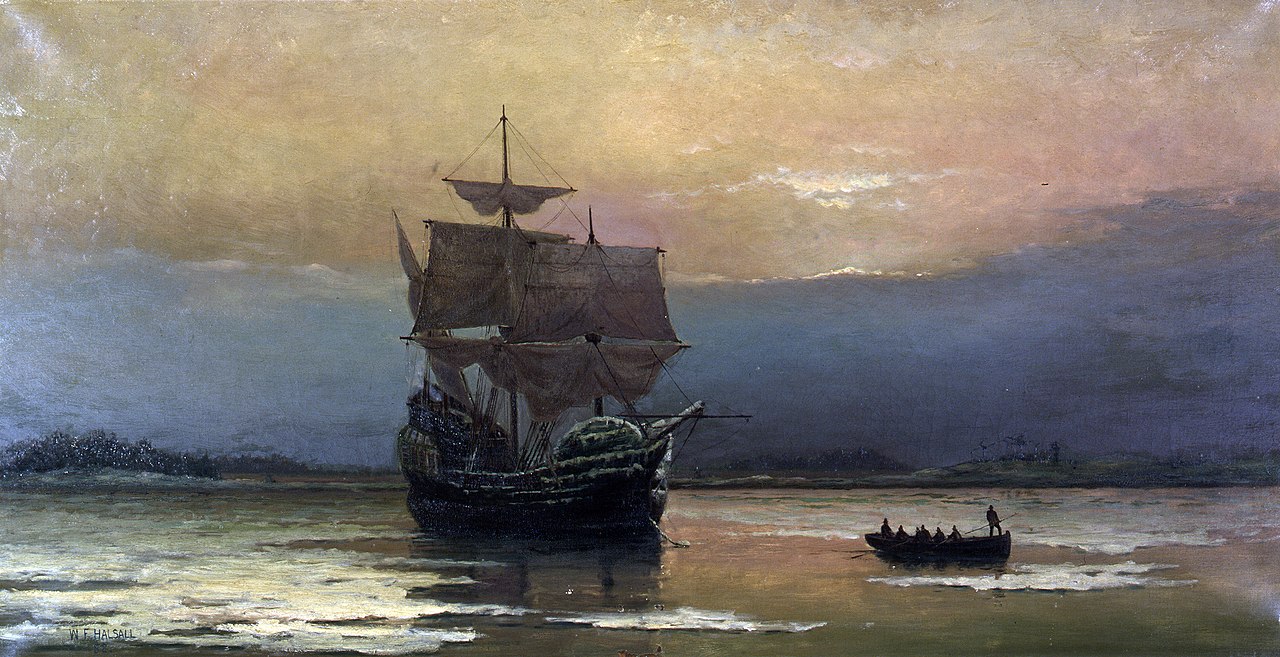Your new book Did America Have a Christian Founding? Separating Modern Myth from Historical Truth has been getting a lot of attention (as it should). Let me start by asking a basic question about the subtitle that I want you to answer, as if you were on Twitter, in 280 characters or less. What is the “modern myth” and what is the “historical truth” about Christianity and the founding?
Justin Dyer

By “myth” I mean a false story. In the book, I demolish the common assertions that America’s founders were deists who created a godless constitution and that they desired to build a wall of separation between church and state. I make the affirmative case that they were influenced by their Christian convictions in profound ways.
Mark Hall

Let’s take those on one at a time. On the first point, I think you are on solid ground. The founders certainly talked like people who believed in a providential god. References to divine providence are everywhere in public and private documents of the founding era, including from some of the founders such as Jefferson and Franklin, who are arguably the most heterodox in their religious beliefs. Why have so many historians and political theorists characterized the founders as deists?
Justin Dyer

Authors who argue that “most” or “many” of America’s founders were deists inevitably focus on just a handful of founders: Franklin, Washington, Adams, Jefferson, Madison, Hamilton, and usually an additional favorite or two. These were indisputably great men, but they were also profoundly unrepresentative of the literally hundreds of civic leaders who helped the colonies break from Great Britain and form our constitutional order. For instance, all but one of these leaders were either life-long Anglicans or were worshiping in Anglican churches by the end of their lives. Only 16% of Americans in this era were Anglicans. Moreover, if we accept a common definition of deism that denies that God intervenes in the affairs of men and nations, I show that perhaps none of these men are accurately labeled as deists. Franklin, Adams, and Jefferson were clearly not orthodox Christians, but that does not necessarily make them deists.
Mark Hall

As you note, your book also makes the positive case that the founders were influenced by Christianity. This gets to the heart of the question of the book’s title: Did America have a Christian founding? Of course, the answer depends on what we mean by a Christian founding. At times, I took your argument to be that America had a Christian founding in the limited sense that Christianity was one of the major intellectual influences in the founding era. Getting into the weeds a bit, for example, you write in a footnote on page 164 that “Christianity was not the only significant influence on America’s founders, and it did not influence each founder in the exact same manner.” Coming back to the title, then, what exactly do you mean by a Christian founding?
Justin Dyer

In the founding era, 98% of white Americans were Protestant, 2% were Roman Catholic, and there were about 2,500 Jews in a handful of American cities. But these facts mean little if America’s civic leaders were self-consciously creating a secular political order. I argue that the founders were profoundly influenced by their Christian convictions when they broke from Great Britain and created America’s constitutional order. For instance, their view that humans are sinful led them to oppose concentrated power by strictly limiting the power of the national government and embracing the separation of powers and checks and balances. When they looked to Enlightenment thinkers like Montesquieu, they were seeking solutions to a Christian problem: how to create a more powerful national government that would not become tyrannical. It is true that non-Christians might conclude that humans are sinful (or self-interested), but in late-18th century America, Christianity best explains why most of them accepted this view of human nature.
Mark Hall

You multiply examples of this kind of influence in the book, and recent works by Daniel Dreisbach (Reading the Bible with the Founding Fathers) and Carl Richard (The Founders and the Bible) convincingly demonstrate that the Bible influenced the founding generation in profound ways. But let me push on this point a bit. After all of the scholarly debates about whether the American founding was liberal or republican, it is fashionable now for scholars to characterize the founding as an amalgamation of different traditions. Is it your sense from your study of the founding that Christianity was just one tradition among many or the dominant tradition? Or would you characterize Christianity’s influence in altogether different terms?
Justin Dyer

Christian ideas, and ideas developed within the Christian tradition of political reflection, were the dominant intellectual influences in the founding era. One reason many academics, especially political scientists, have a hard time grasping this point is that they focus too narrowly on a handful of documents penned by a few founders. When one turns from considering just five or six unrepresentative elites to the literally hundreds of men who served in the Continental and Confederation Congresses, the first federal Congresses, and the state conventions and legislatures that ratified the Constitution and the Bill of Rights, a very different picture of Christianity’s role in the founding comes into focus. Did America Have a Christian Founding? provides an accessible version of this argument, but it is based on thirty years of academic study and a host of other scholarly works.
Mark Hall

Let me close our conversation by inviting you to reflect on a comment that then-Senator Barack Obama made in a notable 2006 speech on faith and politics. “Given the increasing diversity of America’s population,” Obama said, “the dangers of sectarianism have never been greater. Whatever we once were, we are no longer just a Christian nation; we are also a Jewish nation, a Muslim nation, a Buddhist nation, a Hindu nation, and a nation of nonbelievers.” What relevance does your research have for our religiously diverse and politically polarized society today?
Justin Dyer

I argue that America had a Christian founding, but specifically reject the idea that it was founded as a Christian nation. The latter is exclusive, but America’s founders were inclusive. For instance, Article VI of the US Constitution bans religious tests for federal office and the founders insisted that all men and women have a right to the free exercise of religion. This last point is illustrated well by George Washington’s wonderful 1790 letter to the Hebrew Congregation in Newport, Rhode Island. Today, I think prudence and civic friendship requires us all to recognize that we live in a pluralistic country. Robustly Christian calls for prayer by Congresses or Presidents may have been appropriate in the 18th century when 99.99% of American citizens were Christians, but when such calls are issued today they should be (and usually are) inclusive rather than exclusive.
Thanks very much for giving me the opportunity to discuss my new book!
Mark Hall



